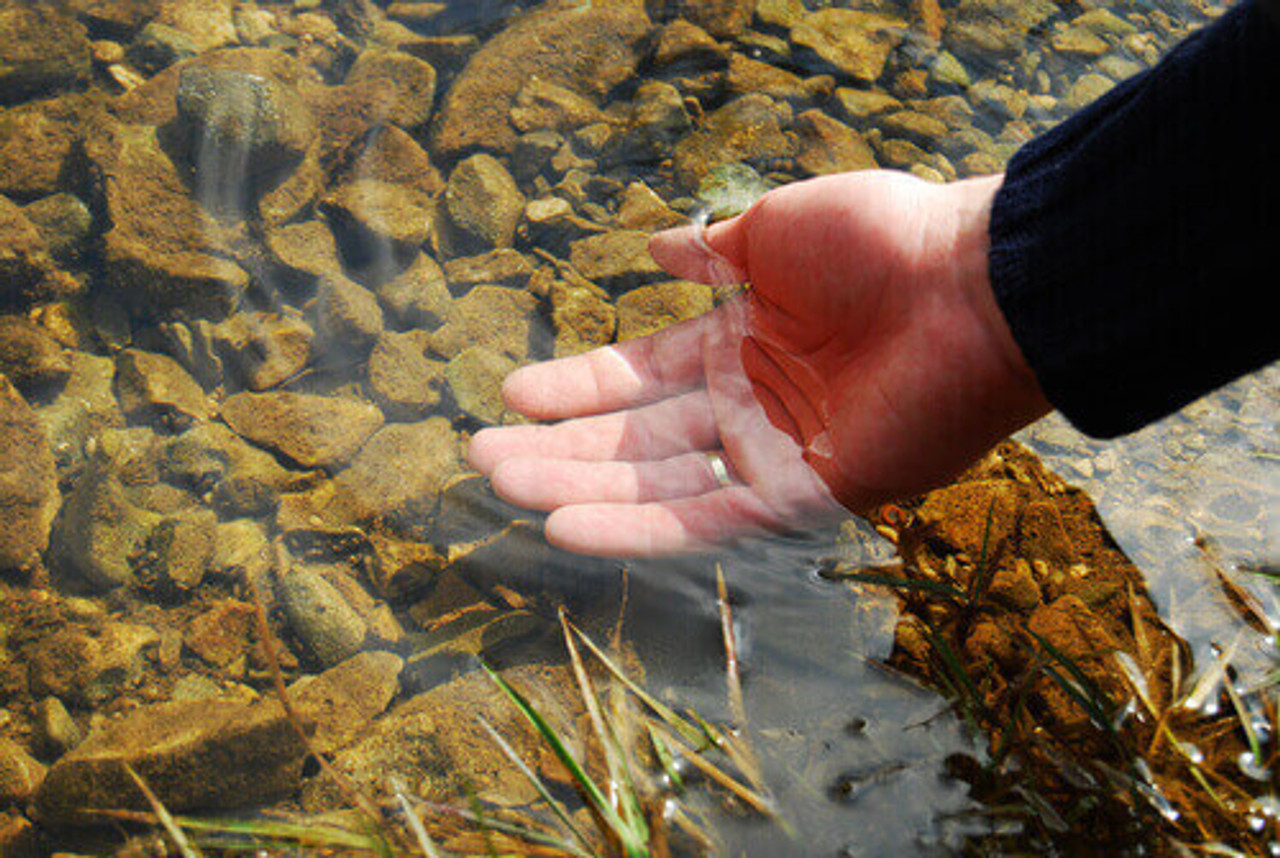Why Do You Need To Perform Pond Water Testing?
Apr 19th 2024

Apr 19th 2024

Ponds and lakes will differ when it comes to their chemical composition, and this is true even when they are in close proximity to one another. Bodies of water, manmade or natural, are also subject to constant change which means pond water testing should be an essential part of your maintenance routine.
Water testing is used to determine certain attributes of pond water, such as the temperature, flow rate, nutrients and Secchi depths. The test will also determine the water’s chemical characteristics, such as the presence of ammonia, pH, oxygen which is dissolved, nitrites and organic carbon. Water testing should also give you information about the water’s biological attributes, such as the amount of fish and plants, bacteria, invertebrates and zooplankton. A sample of the water can be taken, and you can use various types of equipment or instruments to test it. Understanding the results and what they mean for your pond takes both knowledge and experience.
For an existing pond, you will need to check just beneath the water surface, preferably in the center or where the stream water enters it. You can also take a sample of mud. You must also be mindful of the time of day when you perform the testing. Water testing is best performed either during sunset or sunrise. The reason for this is because chemical fluctuations occur best during these times which will give you key insights as to the quality of your water. When samples of mud are taken, it is important to test them as soon as possible. If you need to wait, then place them in a plastic bag that is air tight.
Getting the water testing results is one thing; interpreting them is another matter entirely. For instance, the presence of coliform fecal bacterial is essential as it determines the health of the water and the impact on animals that ingest it. Any pond or other body of water which you swim in should be regularly tested for E. coli. This bacterium is typically deposited by birds and other larger animals. Understanding the nutrient levels or Secchi depth can provide crucial insights as to whether or not a treatment plan is effective.
Both phosphorous and nitrogen are important nutrients to watch for when testing water. They tend to become extensive in any body of water which is frequently exposed to human activity, as well as waste runoff. These nutrients in large amounts can cause eutrophication, and understanding them will give you the knowledge to rate the health of the water and to foresee future problems that can result from a decline in quality..
Oxygen is another thing that you should monitor carefully, especially if fish are present in the pond. The level of dissolved oxygen present in the water will determine how well your fish can survive in it, and if the levels are low this can result in high fish mortality, especially during summer when water temperatures increase.
| Hours | |
|---|---|
| sunday | 10:00-5:00 |
| monday | 9:00-6:00 |
| tuesday | 9:00-6:00 |
| wednesday | 9:00-6:00 |
| thursday | 9:00-6:00 |
| friday | 9:00-6:00 |
| saturday | 9:00-6:00 |
| Hours | |
|---|---|
| sunday | 10:00-5:00 |
| monday | 9:00-6:00 |
| tuesday | 9:00-6:00 |
| wednesday | 9:00-6:00 |
| thursday | 9:00-6:00 |
| friday | 9:00-6:00 |
| saturday | 9:00-6:00 |
| Hours | |
|---|---|
| sunday | 10:00-5:00 |
| monday | 9:00-6:00 |
| tuesday | 9:00-6:00 |
| wednesday | 9:00-6:00 |
| thursday | 9:00-6:00 |
| friday | 9:00-6:00 |
| saturday | 9:00-6:00 |
| Hours | |
|---|---|
| sunday | 10:00-5:00 |
| monday | 9:00-6:00 |
| tuesday | 9:00-6:00 |
| wednesday | 9:00-6:00 |
| thursday | 9:00-6:00 |
| friday | 9:00-6:00 |
| saturday | 9:00-6:00 |
| Hours | |
|---|---|
| sunday | Closed |
| monday | 9:00-5:00 |
| tuesday | 9:00-5:00 |
| wednesday | 9:00-5:00 |
| thursday | 9:00-5:00 |
| friday | 9:00-5:00 |
| saturday | Closed |
| Hours | |
|---|---|
| sunday | 10:00-5:00 |
| monday | 9:00-6:00 |
| tuesday | 9:00-6:00 |
| wednesday | 9:00-6:00 |
| thursday | 9:00-6:00 |
| friday | 9:00-6:00 |
| saturday | 9:00-6:00 |
| Hours | |
|---|---|
| sunday | Closed |
| monday | 9:00-6:00 |
| tuesday | 9:00-6:00 |
| wednesday | 9:00-6:00 |
| thursday | 9:00-6:00 |
| friday | 9:00-6:00 |
| saturday | 9:00-6:00 |
| Hours | |
|---|---|
| Sunday | Closed |
| Monday | 9:00-6:00 |
| Tuesday | 9:00-6:00 |
| Wednesday | 9:00-6:00 |
| Thursday | 9:00-6:00 |
| Friday | 9:00-6:00 |
| Saturday | 9:00-6:00 |
| Hours | |
|---|---|
| Sunday | 10:00-4:00 |
| Monday | Closed |
| Tuesday | 9:00-5:00 |
| Wednesday | 9:00-5:00 |
| Thursday | 9:00-5:00 |
| Friday | 9:00-5:00 |
| Saturday | 9:00-5:00 |









| Hours | |
|---|---|
| sunday | 10:00-5:00 |
| monday | 9:00-6:00 |
| tuesday | 9:00-6:00 |
| wednesday | 9:00-6:00 |
| thursday | 9:00-6:00 |
| friday | 9:00-6:00 |
| saturday | 9:00-6:00 |
| Hours | |
|---|---|
| sunday | 10:00-5:00 |
| monday | 9:00-6:00 |
| tuesday | 9:00-6:00 |
| wednesday | 9:00-6:00 |
| thursday | 9:00-6:00 |
| friday | 9:00-6:00 |
| saturday | 9:00-6:00 |
| Hours | |
|---|---|
| sunday | 10:00-5:00 |
| monday | 9:00-6:00 |
| tuesday | 9:00-6:00 |
| wednesday | 9:00-6:00 |
| thursday | 9:00-6:00 |
| friday | 9:00-6:00 |
| saturday | 9:00-6:00 |
| Hours | |
|---|---|
| sunday | 10:00-5:00 |
| monday | 9:00-6:00 |
| tuesday | 9:00-6:00 |
| wednesday | 9:00-6:00 |
| thursday | 9:00-6:00 |
| friday | 9:00-6:00 |
| saturday | 9:00-6:00 |
| Hours | |
|---|---|
| sunday | Closed |
| monday | 9:00-5:00 |
| tuesday | 9:00-5:00 |
| wednesday | 9:00-5:00 |
| thursday | 9:00-5:00 |
| friday | 9:00-5:00 |
| saturday | Closed |
| Hours | |
|---|---|
| sunday | 10:00-5:00 |
| monday | 9:00-6:00 |
| tuesday | 9:00-6:00 |
| wednesday | 9:00-6:00 |
| thursday | 9:00-6:00 |
| friday | 9:00-6:00 |
| saturday | 9:00-6:00 |
| Hours | |
|---|---|
| sunday | Closed |
| monday | 9:00-6:00 |
| tuesday | 9:00-6:00 |
| wednesday | 9:00-6:00 |
| thursday | 9:00-6:00 |
| friday | 9:00-6:00 |
| saturday | 9:00-6:00 |
| Hours | |
|---|---|
| Sunday | Closed |
| Monday | 9:00-6:00 |
| Tuesday | 9:00-6:00 |
| Wednesday | 9:00-6:00 |
| Thursday | 9:00-6:00 |
| Friday | 9:00-6:00 |
| Saturday | 9:00-6:00 |
| Hours | |
|---|---|
| Sunday | 10:00-4:00 |
| Monday | Closed |
| Tuesday | 9:00-5:00 |
| Wednesday | 9:00-5:00 |
| Thursday | 9:00-5:00 |
| Friday | 9:00-5:00 |
| Saturday | 9:00-5:00 |
